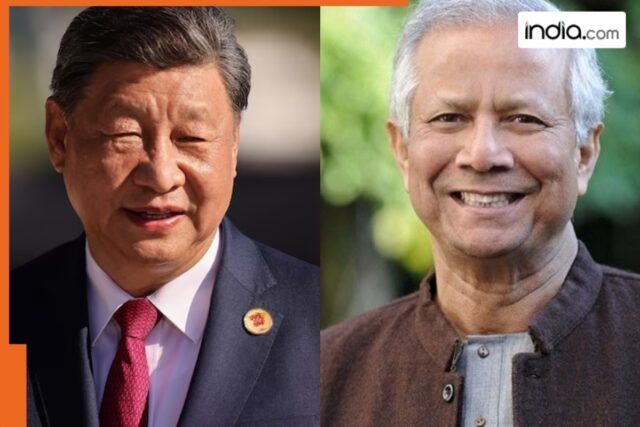China needs strategic assets in Bangladesh at all costs.
New Delhi: After the invitation from Mohammad Yunus, it seems that China is planning to start its projects in Bangladesh as soon as possible. Last month, Mohammad Yunus visited Beijing, where he called for investment from China in Bangladesh. According to recent reports, a large delegation led by China’s commerce minister is set to arrive in Dhaka in May, to discuss investment possibilities in Bangladesh. It is believed that this event could deeply impact the diplomacy and balance of power in South Asia. China’s commerce minister Wang Wentao is going to visit Bangladesh’s capital, Dhaka. This visit is not merely a formal trip of a ‘business delegation’, there is a significant geo-political strategy hidden behind it, which could be a serious concern for India.
According to the report, during the visit to Dhaka, the Chinese delegation is set to explore new avenues for investment in Bangladesh while also discussing the defense sector, water management, and infrastructure. China has long viewed Bangladesh as part of its ‘String of Pearls’ strategy, aimed at encircling India with airbases and ports. From Sri Lanka’s Hambantota Port to Pakistan’s Gwadar and Myanmar’s Kyaukphyu, China’s strategy clearly indicates that its objective is solely to encircle India; hence, it wants to start its projects in Bangladesh immediately.
The way the interim government of Bangladesh is welcoming China with open arms suggests that China can launch its projects in Bangladesh very soon. It is assumed that China needs strategic assets in Bangladesh at all costs and will start working on this as soon as possible. Particularly, the focus of China will currently be on the Teesta project. The Teesta water dispute between India and Bangladesh has been an old issue. India has discussed it for years but has not been able to find a concrete solution. Now, China is planning to invest in this project.
If an agreement is reached between China and Bangladesh in the Teesta project, it will be a direct geopolitical intervention. The Teesta River plan is not just about water sharing but is also related to India’s security arrangements in Sikkim and West Bengal. China’s involvement here is not just for “water,” but for “influence.” In addition, China is also paying attention to the Lalmonirhat airfield, which is located very close to India’s border in northwestern Bangladesh. If there is any Chinese investment here, it could potentially become a dual-use military airbase under the guise of civilian infrastructure. This would pose a strategic threat to India, especially as China is already attempting to trouble India in Doklam and Arunachal Pradesh.

















































